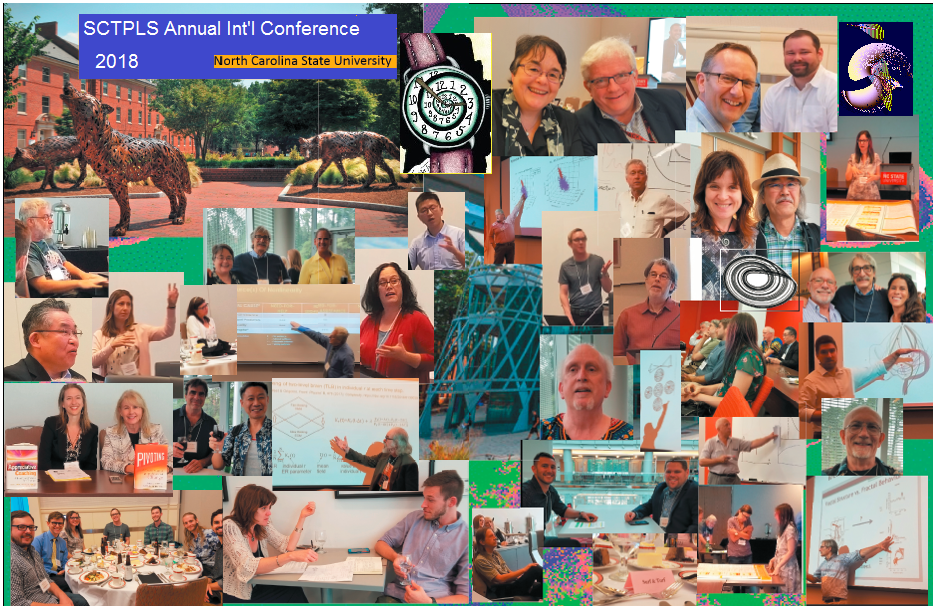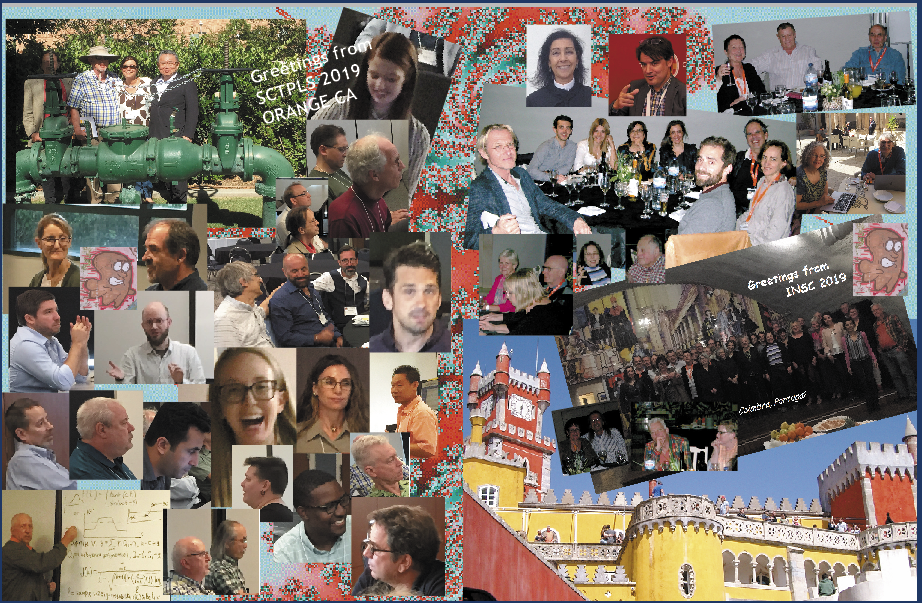The 35th Annual International SCTPLS Conference was hosted by the University of Colorado Springs, (Colorado, USA) Wed. to Fri., July 30 - August 1, 2025. The location was the Marriott Envoy – Elements hotel and Spring Hill Suites. Watch this space for news and developments for 2026.
The pre-conference workshop featured nonlinear methodologies, same location, on Wed. July 30. Participants were encouraged to bring data that they would like to analyze.

2019 Conference, Orange, CA
2018 Conference, Raleigh, NC
2017 Conference, Cincinnati, OH
2016 Conference, Salt Lake City, UT
2015 Conference, Gainesville, FL
2014 Conference, Milwaukee, WI
2013 Conference, Portland, OR
2012 Conference, Baltimore, MD
2011 Conference, Orange, CA
2010 Conference, San Marcos, TX
2009 Conference, Milwaukee, WI
2008 Conference, Richmond, VA
2007 Conference, Orange, CA
2006 Conference, Baltimore, MD
2005 Conference, Denver, CO
2004 Conference, Milwaukee, WI
2003 Conference, Boston, MA
2002 Conference, Portland OR
2001 Conference, Madison, WI
2000 Conference, Philadelphia, PA
1999 Conference, Berkeley, CA
1998 Conference, Boston, MA
1997 Conference, Milwaukee, WI
1996 Conference, Berkeley, CA
1995 Conference, Garden City, NY
1994 Conference, Baltimore, MD
1993 Conference, Orillia, ON
1992 Conference, Washington DC
1991 Conference, San Francisco, CA

The conference is typically intimate in size with around 60-70 attendees representing psychology, biology, economics, business, physics, mathematics, and other scholars organized around a common interest in nonlinear dynamics. Attendance is typically broad geographically as well, with membership in SCTPLS representing each of the global continents. The program includes prominent keynote speakers, cutting-edge pre-conference workshops, symposia, individual sessions, and poster presentations.
Members attending the Annual Conference are all welcome to particpate in the SCTPLS business meeting that is scheduled as part of the conference.
The Nonlinear Datapalooza turns this process upside-down: no hierarchy, no finished work, and no boundaries to forming new collaborations and learning new methods. As the name suggests - the Nonlinear Datapalooza is all about getting together to analyze data. Who will be attending: (A) methods experts to obtain new data sets to analyze (B) people with data sets who would like to learn new approaches to analysis and (C) content experts and students who want to learn new methods and contribute as co-authors on more high quality publications. Essentially - the conference will match people who would like to write up "methods" and "results" with those who would like to write up "introductions" and "discussions." In the process, methodologists will learn about other disciplines and further validate their tools, while content experts and students will learn how to apply new methodologies to their work. Each attendee should be able to try out at least one new method and become an author on at least one original publication produced during the conference. At the same time, the work produced should make a serious impact on the field of nonlinear science, as we produce multiple papers with the potential to combine different methodologies.